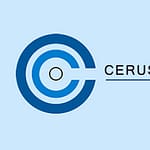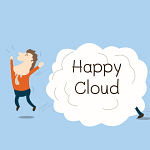Every manager wants to know the secret behind motivating performance and encouraging productivity. We want engaged employees who are dedicated to the company and invested in its future. Engaged employees are 38% more likely to be more productive and organisations with high levels of engagement report 22% more productivity. This makes all the difference to an SME determined to succeed and compete.
Unfortunately, there is no one-size-fits-all approach to ensure success. However, there are certain steps that we, as managers, can take to significantly encourage motivated, dedicated and driven employees.
Get to know your employees
Your employees don’t want to feel like anonymous workers. They want to feel valued and appreciated, as we all do. You might not think you have the time to get to know each and every employee personally, but you’d be surprised at how easy it is to take the time to ask the right questions. If you show a bit of interest in who they are, how they think and what they enjoy, it will help you develop a greater understanding of them as an employee. As a manager, you will seem less intimidating and more approachable. For a happy and engaged workforce, it is essential that the c-suite are visible, reliable and available.
Use employee performance management software to keep you connected
Never underestimate the importance of effective communication. Touching base regularly is more important — and expected — than ever before. Today’s culture is never lacking input or opinion in any area of life. As a result of this, employees don’t expect anything less than real-time feedback with regards to their work performance.
It has been shown that the level of communication with managers plays a significant role with regards to employee engagement, potentially increasing engagement by 70%. Understandably, your workforce wants to know where they are excelling and where they can improve. They want to know where they are making mistakes immediately — not in a solitary yearly review, by which time their bad habits have already formed. This is a large reason behind why continuous performance management has become so widespread over recent years.
Many top companies, including Deloitte, Microsoft and General Electric, have seen the light and incorporated the use of regular check-ins, which allow for more fluid and honest communication. Although frequent check-ins are a simple concept, they need to be well-structured and monitored to ensure maximum impact. This is where performance review software steps in to schedule meetings, send out reminders and provide a social media-like platform that allows for real-time feedback. Before long, your employees will feel free to exchange opinions and constructive criticism, and your company will benefit as a result.
Collaborate on SMART goals
You can’t have fully engaged employees if your workforce is confused or uncertain as to what they are working towards. The process of goal-setting is vital to the success of each and every employee, and the act of setting and defining goals should be a collaborative effort.
Take the time to meet with each employee and discuss what that particular individual’s strengths are, what areas they need to improve upon and what milestones they should be meeting both short term and long term. This will give you, as the manager, a greater understanding of where that employee stands and what they are capable of achieving. At the same time, the employee will have clarity with regards to their objectives, and they will have a strategy to accomplish their goals. This gives the employee purpose and motivation.
Show them how they make a difference to the company
Give them context for their role within the company. Even if an employee understands their position and how to perform it adequately, unless they know how their work benefits the organisation as a whole, they only have half the story. Offer them transparency — a trait that has a 94% correlation with employee happiness — and demonstrate how vital they are to the smooth running of the company.
If an employee understands how their goals align with the company’s overall objectives and future direction, they will feel much more engaged and determined to succeed. Brian Tracy describes this as the “dependency need” — put simply, each employee’s desire to be a part of something larger than themselves.
Don’t be afraid to reward and recognise good performance
When was the last time you expressed gratitude for a job well done or encouragement for improvement in performance? Is it possible that you are taking your high performers for granted and being overly demanding of new employees who are trying to advance? You might be surprised at the beneficial impact that reward and recognition can have on a workforce. You are likely to see heightened loyalty, satisfaction with work, increased productivity and decreased turnover, on top of diminished levels of stress and absenteeism.
Rewards can come in the form of a “thank you” or a “congratulations”, and they can make all the difference to the engagement of your team.
Allow room for development and advancement
If you have hired the right person, chances are you are dealing with an ambitious, eager and driven individual. These types of people won’t be inclined to remain in the same position, unchallenged, for a significant period of time. They will want to increase their skills and advance, and if they can’t find advancement opportunities within your organisation, you will probably lose them to a competitor who will benefit from their ambition. In fact, a Harvard Business Review study revealed that the biggest reason high-performing employees gave for leaving their position was the lack of adequate career development support.
You and your employees should take the time to collaborate on personal development plans. Offer every single employee the opportunity to better themselves, and encourage the learning of new skills. This will ultimately result in a more educated, driven and productive team to steer your company toward success.
Author Bio: Stuart Hearn heads up Clear Review, a company that designs innovative performance management software. He has been working in the HR sector for over 20 years, previously working for Sony Music Publishing and co-founding PlusHR.




